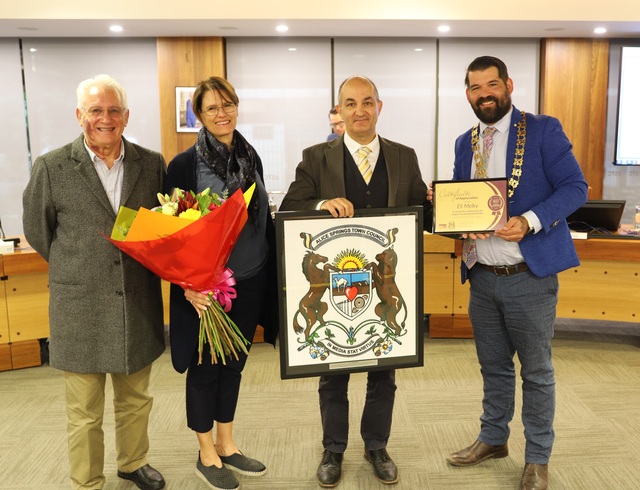A further six local government authorities have recently joined the push to both improve end-of-life tyre management reducing the instances of illegal dumping and council asset management, through the use of infrastructure products containing tyre-derived raw materials.
Burdekin Shire Council, Queensland, Campbelltown City Council, South Australia, City of Launceston, Tasmania, Paroo Shire Council, Queensland, City of Prospect, South Australia, and Upper Hunter Shire Council, New South Wales, have joined more than 1500 tyre sector, local government and transport industry participants who all pledge to ensure they employ sustainable waste tyre management practices and seek to do tyre industry related business only with other Tyre Stewardship Australia (TSA) accredited entities.
Along with transport companies, local governments deploy significant fleets of vehicles.
Ensuring that the tyre needs of those fleets are catered for only by entities committed to responsible end-of-life tyre management can make a significant impact on sustainable outcomes for the over 56 million end-of-life tyres Australia generates every year.
In addition, local authorities have the opportunity to use recycled tyre-derived materials in urban infrastructure, through both well established applications and rapidly emerging new products that offer innovative and cost effective solutions for a variety of needs.
Existing uses of tyre-derived material, for applications such as providing soft fall surfaces on playgrounds, are being added to by innovations such as erosion protection wall systems in waterways, noise barriers along roads and permeable pavements for carparks, footpaths and walking tracks.
A major focus for the development of new materials is the continual improvement and tailoring of crumbed rubber asphalt used in roads.
All five newly TSA accredited councils will be closely watching crumbed rubber asphalt trials in South Australia’s City of Mitcham, amongst others occurring nationally, with a view to specifying the use of similar surfaces for their future road maintenance and enhancement projects.
The trial consists of a 335 metre stretch of the innovative road surface at Stanlake Avenue, St Marys.
Funded by Tyre Stewardship Australia, the trial is part of the organisation’s focus on motivating an increase in local markets for tyre-derived product.
Crumbed rubber asphalt has been in extensive use overseas, in climatic conditions similar to Australia, with long term use in California, Arizona and South Africa delivering excellent road performance results and highly desirable sustainability outcomes.
The local road trial will be looking at a range of performance factors, such as cracking, rutting, moisture retention and general durability.
It is expected that the results will further drive the move to increase the specification of such roads, not only with other South Australian councils but also nationwide.
TSA Chief Executive Officer, Lina Goodman, welcomed the accreditation of further local authorities, praising their foresight.
“Having local authorities on board is a vital step in terms of ensuring sustainable management of old tyres, and also to drive the commercial viability of developing new and improved tyre-derived products that can deliver better urban and regional infrastructure.
“These councils are leading the way, having proven to be reliable early adopters of such moves towards a circular economy.”
As TSA continues to focus on engaging with local government, the organisation is expecting a steady flow of councils to join the efforts to deliver the benefits of full lifecycle management of used tyres.
Benefits that councils are in a unique position to experience, from the appropriate procurement and waste management of fleet tyres, to the specification of innovative tyre-derived products for improved asset delivery and management.
*Copy supplied by Tyre Stewardship Australia







